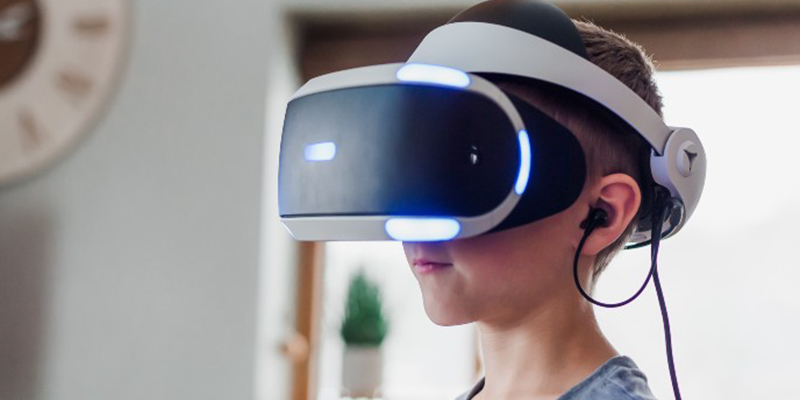Immersive virtual reality project launches to help children diagnosed with rare muscle-wasting disease
Wednesday 11 August 2021
A team of researchers and clinicians from Sheffield Hallam University, Sheffield Children’s NHS Foundation Trust and Leeds Teaching NHS Trust is developing an immersive virtual reality (VR) platform to improve the physiotherapy of children living with Duchenne muscular dystrophy (DMD).
DMD is a paediatric genetic disease that causes muscles to deteriorate and break down. It affects 2,500 children in the UK and there is currently no cure.
Children with DMD are encouraged to undertake a daily stretching programme for maximum muscle extensibility, however it can be difficult to maintain engagement and this can lead to complications, reduced function and a poorer long-term prognosis.
The project, which is fully funded (over £53,000) from The Children’s Hospital Charity, aims to develop fun, interactive immersive VR play scenarios that will help distract DMD-affected children from the discomfort and labour involved in performing repeated exercises. The game scenarios will be accessible via the Oculus Quest 2 VR headsets.
The team is working with children aged 5-10 years old to develop VR games that will improve range of movement, motor function, decrease anxiety and improve quality of life.
It will be the first platform of its kind for lower-limb rehabilitation in DMD patients.
Professor Paul Dimitri, honorary professor of child health at Sheffield Hallam University, consultant paediatric endocrinologist at Sheffield Children’s Hospital and director of NIHR Children and Young People MedTech Co-operative, said: “Muscle weakness is the principal symptom of DMD. It can begin as early as age two or three and affected children often have difficulty jumping, running, and walking. Physiotherapy is key to ensuring the best function for children with DMD. By advancing the way in which physiotherapy can be delivered using virtual reality, we ensure that children with DMD engage with and enjoy their therapy at home and in hospital whilst improving their future quality of life.”
The research team has previously developed and deployed immersive VR scenarios, involving activities such as climbing, cooking, and archery, to aid the physiotherapy and rehabilitation of adult amputees, burns patients and children with upper and lower limb injuries.
Ivan Phelan, principal research fellow at Sheffield Hallam University and director of Impact VR said: “Impact VR is excited to collaborate with Sheffield Children’s NHS Foundation Trust and Leeds Teaching Hospitals NHS Trust to address this unmet need. We aim to build upon our previous successful rehabilitation solutions to develop a system alongside patients and staff that is fit for purpose, engaging and suitable for home use.”
Lindsey Pallant, specialist neuromuscular physiotherapist at Leeds Children’s Hospital, said: “Physiotherapists are always keen to find innovative and fun ways to help children engage with activities and exercises which are part of their daily routine. We anticipate active participation in a VR game designed with specific therapy goals will be is motivational and appealing and something that the child will want to return to again and again. This will help maintain mobility and movement and make a really positive contribution a physiotherapy programme.”
Both Leeds and Sheffield Children’s Hospital are MDUK centres of excellence for the care of children with neuromuscular disorders. As such, they actively participate in national audits and networks to support those with DMD.
Sheffield is one of the four UK infusion centres for Zolgensma, a new gene therapy treatment for Spinal Muscular Atrophy, whilst Leeds is a regional DMD hub for research. This will be the 12th study that the team, supported by Duchenne UK, has undertaken in children with DMD, but the first to look at innovative approaches to enhancing physical well-being.
Sheffield Hallam University is a national leader in creating innovative and real-world solutions for tackling today’s health and wellbeing challenges.
Donations to The Children’s Hospital Charity fund up to £250,000 of research projects every year to ensure future generations receive the very best healthcare, through better diagnosis and treatment.
NIHR Children and Young People MedTech Co-operative is one of 11 MedTech and In vitro diagnostics Co-operatives funded by the National Institute for Health Research that work with clinical teams, academics, businesses and service users to support the development and adoption of new medical devices, healthcare technologies and technology-dependent interventions in the NHS.




